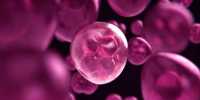A group of scientists is making progress in understanding the relationship between certain enzymes that are naturally produced in the body and their involvement in regulating obesity and controlling liver illnesses. Researchers looked at male mice lacking the Cyp2b enzyme and how their metabolism was altered.
Clemson University scientists are making progress in understanding the relationship between certain enzymes that are naturally produced in the body and their role in managing obesity and controlling liver illnesses.
According to data obtained by the Centers for Disease Control and Prevention (CDC) in 2017-18, more than 42 percent of U.S. adults and 19 percent of U.S. kids are obese. Three Clemson researchers and Emory University School of Medicine colleagues analyzed male mice without the Cyp2b enzyme and how the enzyme’s absence affected the mice’s metabolism.
According to William Baldwin, a professor and graduate program coordinator in Clemson’s Department of Biological Sciences, the research was prompted in part by a simple observation: male mice without the Cyp2b enzyme were gaining weight. Female Cyp2b-null mice did not exhibit the same impact.
We discovered that our Cyp2b-null mice were heavier. They are more prone to obesity – at least, diet-induced obesity – notably in males than wild-type mice, and we were trying to figure out why.
Professor Baldwin
“We discovered that our Cyp2b-null mice were heavier,” said Baldwin, a professor of biological sciences. “They are more prone to obesity – at least, diet-induced obesity – notably in males than wild-type mice, and we were trying to figure out why.”
While the discovery that tipped the researchers off was simple, it turned out that comprehending the interactions causing the weight gain would be much more difficult. “It would be lovely if there was a nice, straightforward answer,” Baldwin remarked, “but there probably isn’t a good, simple answer.”
Baldwin emphasized the complexities of several chemical processes involving the CYP enzyme, which is part of an enzyme superfamily that plays a number of roles in humans. According to him, the Cyp2b enzymes aid in the metabolization of some toxins and medications in order to eliminate them from the body.
However, those same CYP enzymes have additional functions. “They metabolize bile acids, steroid hormones, and polyunsaturated fats from our diet,” Baldwin explained. “This means that all of these things can interact with one another. If you eat a high-fat diet, your drug metabolism may be hampered. Of course, medications can impair fat metabolism, interfere with steroid metabolism, and so on.”
The researchers also looked at the association between “perturbed lipid profiles” and disease.

Changes in the lipidome have a significant impact on disease susceptibility and general health, according to the study. High-fat diets, like the Western diet, produce obesity and radically modify the hepatic lipidome, and altered lipid profiles are linked to particular liver illnesses including nonalcoholic fatty liver disease (NAFLD) and nonalcoholic steatohepatitis (NASH).
Baldwin has previously led research examining the link between nutrition and environmental toxins. The most recent study looked at how age and food affect these metabolic pathways.
“What effects does a poor diet have on us? What effect does age have on us? That’s the general notion here” Baldwin spoke about the most recent studies. “We’re looking at these enzymes and what would happen to our profiles over time in this mouse model versus just a wild-type mouse. What may happen over time with a high-fat diet, what might happen as we age, and how does it differ between this mouse model, which lacks these enzymes, and one that does?”
Simply put, according to Baldwin, “Unsurprisingly, one of the things we discovered is that getting older is terrible. Body weight regulation is more difficult for mice. They put on weight. They have greater white adipose tissue [connective tissue primarily composed of fat cells]. … And some of these effects were exacerbated in mice lacking the Cyp2b enzymes. They were slightly heavier. They were a tad fatter than their contemporaries. Their livers were somewhat larger and slightly less healthy. So they had a lot of the things we identify with becoming older going on.”
Diet also had an impact on the mice’s health.
“Of course, diet didn’t help either,” Baldwin added. “It’s the same story: a poor diet induced weight gain, and it was a little worse with these [Cyp2b-null] animals, perhaps due to poor metabolism.”
According to him, the exact method by which the Cyp2b enzyme operates is not fully understood. “You take away an enzyme that helps metabolize them, but I don’t think it’s as crucial that it helps get rid of the fat as it is that it alerts the body to the presence of fat.” It most likely releases signaling molecules that say, ‘Hey, we need to decide what to do with this fat; we need to distribute this fat.’ This type of information. That’s just an educated guess at this time, but I think that’s probably what’s happening.”
Baldwin stated that his current research focuses on the mechanisms at work and how they differ in a human model from mouse studies. He claims that the study, which will be included in an unpublished report, shows that mouse and human enzymes do not work in the same way. “The human enzyme appears to induce us to retain some fat in the liver, but the mouse enzyme appears to direct that fat to white adipose tissue. There are indicators in this document to suggest that this is the case” According to Baldwin.















